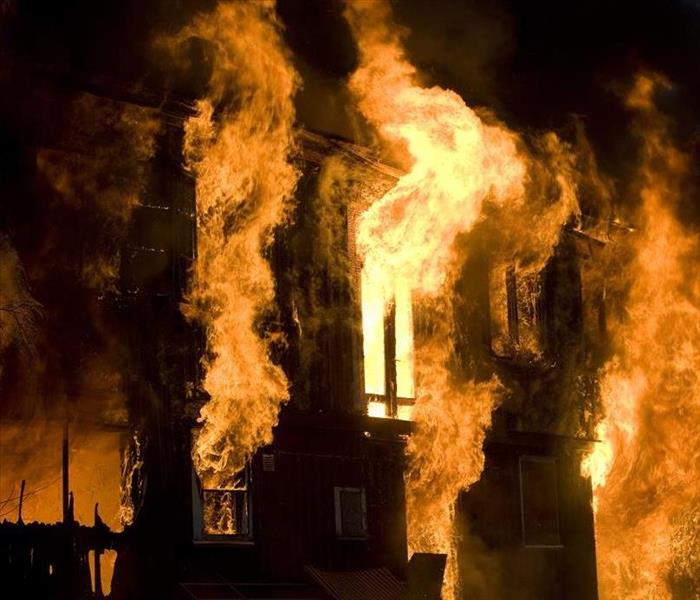Understanding Your Fire Insurance Policy
2/23/2022 (Permalink)
Fire is a destructive force. A home fire in Colorado Springs, CO, can cause a lot of damage that is expensive to mitigate. Fortunately, if you have good insurance coverage, you probably won't have to pay for those services out of pocket. Most basic homeowners' policies cover the cost of repairs, but there are a few situations in which your provider won't pay for restoration.
Home Fire Coverage Basics
Property coverage is designed to help you handle the fallout of sudden, accidental occurrences that cause damage to your home. An accidental fire can start several ways:
- Overturned candle
- Contact with a space heater
- Electrical short
- Ignited grease
The insurance adjuster looks at a couple of key factors to determine whether damage from a fire is likely to be covered by your policy. First, is the damage due to an accident? Most people don't mean to set their kitchens on fire while cooking, so any issues that result from that situation will probably be covered. Second, did the fire occur suddenly? If you are up-to-date on all your home inspections and no ongoing problem has been found, that typically satisfies your provider that you have done your due diligence in keeping your home safe.
Intentional Fires
One exception that typically results in a claim being denied is the suspicion of arson. If there is a reason to believe that you set the fire to your home intentionally, your insurance company will not cover the cost of repairs. An investigation will be needed if you want to dispute the decision. If you are found at fault for the fire, you will have to pay for the damage out of pocket and will probably face legal ramifications as well.
Wildfire Coverage
Most damage from a home fire starts within the structure itself. A wildfire, however, is an external circumstance that can still put your house in danger. If you live in an area prone to wildfires, your basic homeowners' policy may not cover the cost of remediation or rebuilding if your house is damaged by one. Read over your policy for wildfire exclusions and consult with your insurance agent to go over your coverage options. You may have to purchase additional policies to safeguard your home from natural disasters such as wildfires.
Vacant Home Damage
Your homeowners' policy is designed to cover damages to a property that you inhabit. If you have a vacation home that catches fire in your absence or experience a vacant home fire in a rental property, your provider may not pay for the work done by fire restoration specialists to rebuild the structure. Review your policy with your agent to understand your rights and responsibilities when it comes to property you own but don't actually live in on a regular basis.
Repairing the damage caused by a home fire can be overwhelming, but in most cases, your homeowners' policy is likely to foot most, if not all, of the bill. There are some circumstances that insurance doesn't cover, though.
By familiarizing yourself with the details of your policy, you can determine whether your particular case falls under it before you file a claim.



 24/7 Emergency Service
24/7 Emergency Service
